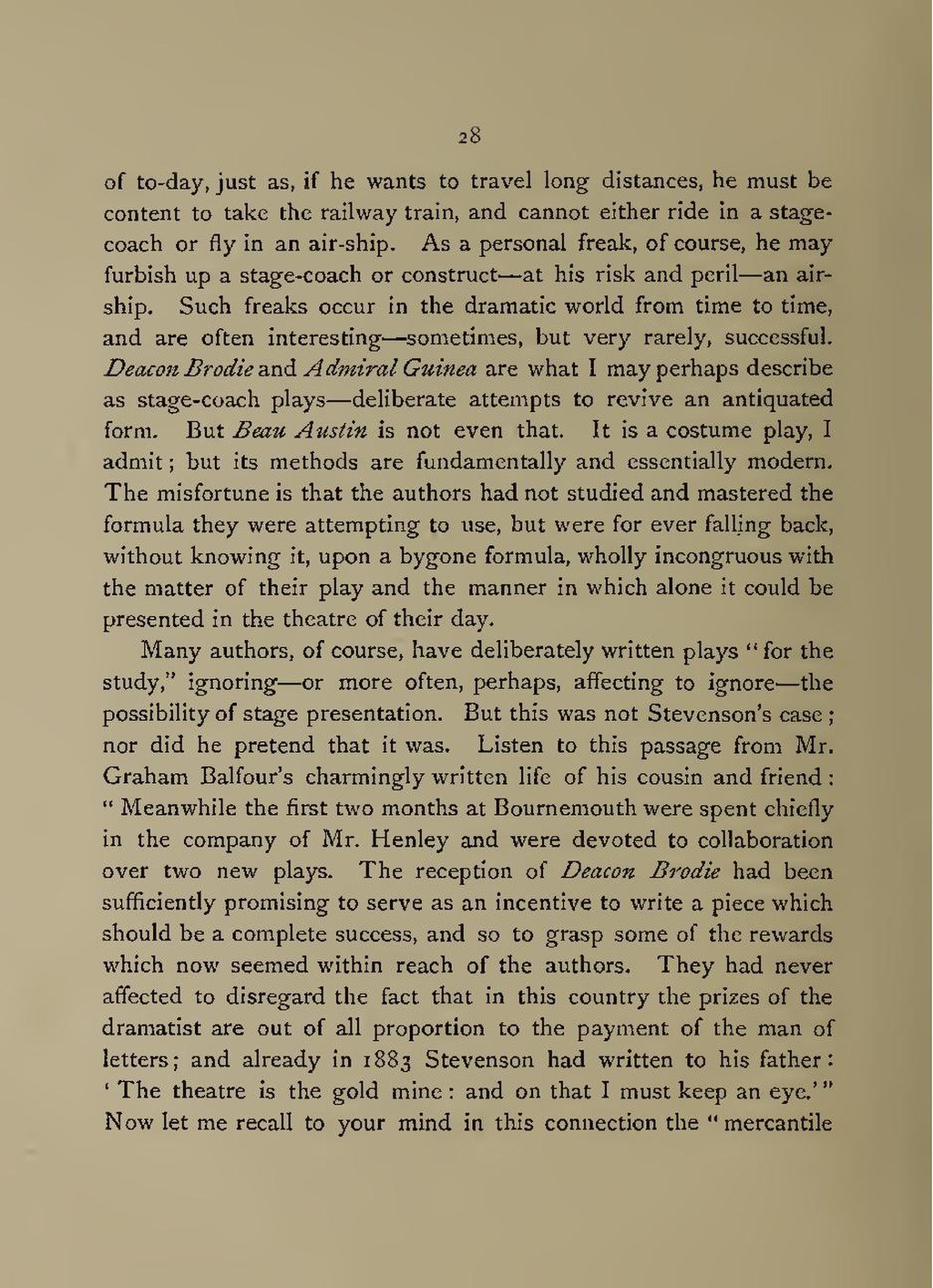28
of to-day, just as, if he wants to travel long distances, he must be content to take the railway train, and cannot either ride in a stagecoach or fly in an air-ship. As a personal freak, of course, he may furbish up a stage-coach or construct—at his risk and peril—an airship. Such freaks occur in the dramatic world from time to time, and are often interesting—sometimes, but very rarely, successful. Deacon Brodie and Admiral Guinea are what I may perhaps describe as stage-coach plays—deliberate attempts to revive an antiquated form. But Beau Austin is not even that. It is a costume play, I admit; but its methods are fundamentally and essentially modern. The misfortune is that the authors had not studied and mastered the formula they were attempting to use, but were for ever falling back, without knowing it, upon a bygone formula, wholly incongruous with the matter of their play and the manner in which alone it could be presented in the theatre of their day.
Many authors, of course, have deliberately written plays "for the study," ignoring—or more often, perhaps, affecting to ignore—the possibility of stage presentation. But this was not Stevenson's case; nor did he pretend that it was. Listen to this passage from Mr. Graham Balfour's charmingly written life of his cousin and friend: "Meanwhile the first two months at Bournemouth were spent chiefly in the company of Mr. Henley and were devoted to collaboration over two new plays. The reception of Deacon Brodie had been sufficiently promising to serve as an incentive to write a piece which should be a complete success, and so to grasp some of the rewards which now seemed within reach of the authors. They had never affected to disregard the fact that in this country the prizes of the dramatist are out of all proportion to the payment of the man of letters; and already in 1883 Stevenson had written to his father: 'The theatre is the gold mine: and on that I must keep an eye.'" Now let me recall to your mind in this connection the "mercantile
